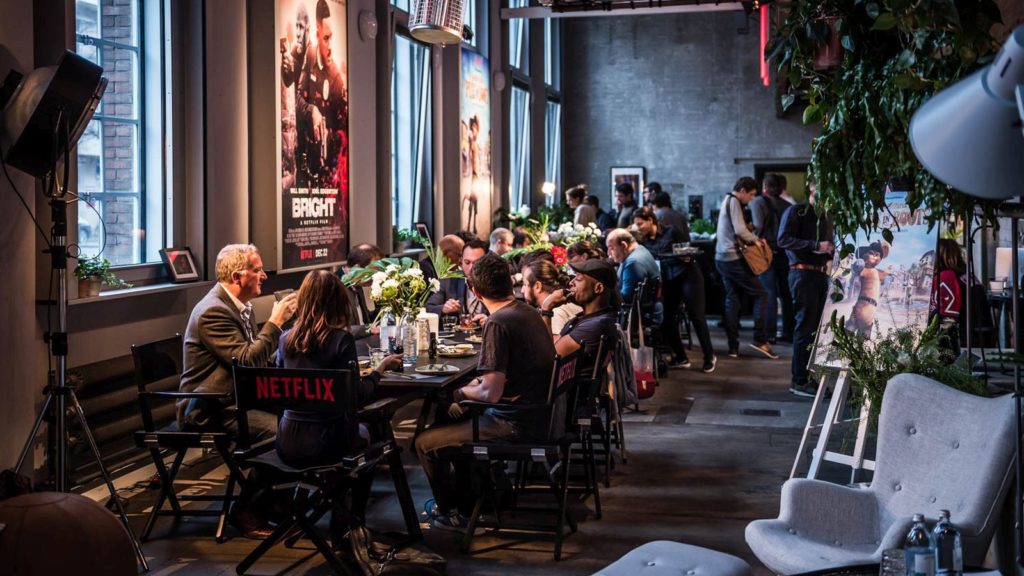I always tend to forget that Netflix hasn’t been in the streaming game all that long. Although the company itself is 20 years old, it’s only been streaming content for ten years. But even with that said, it only launched in South Africa in January 2016, along with 130 other countries across the world.
So two years then. Effectively, the EMEA branch of the company is a startup.
No ad to show here.
“We’re still in our infancy,” Maria Ferreras, Netflix’s VP business development manager EMEA concurs in an interview with Memeburn at a Berlin press junket.
“We’re growing pretty fast, but haven’t been doing this for a long time.”
But that doesn’t mean we can’t critique the company on its near-two year stint on the continent and its plans beyond. So, what has it done for Africans? And what is its next play on our soil?
Ferreras herself is relatively new to the company. Joining earlier this year, she previously headed up YouTube’s strategic alliances division. Now, she’s heading the team that’s trying to introduce the likes of Africa to its streaming video platform.
Africa’s landscape makes it particularly challenging. While Netflix’s key message during this press junket was one of the “Netflix Home Experience”, complete with swanky OLED televisions and Dolby Atmos-enabled soundbars, the continent relies heavily on mobile technology.
This is particularly true in sub-Saharan Africa.
“The region will have more than half a billion unique mobile subscribers by 2020, by which time around half the population will subscribe to a mobile service,” the GSMA’s The Mobile Economy report (pdf) for 2017 reveals.
For South Africa, the mobile penetration rate stands at 68%.
Ferreras on Africa: ‘One of the things we’re trying to do is offer Netflix in local currency’
But Netflix, although acknowledging this issue and reiterating that it is a “device agnostic” company, is still vested in providing entertainment to those who also own televisions.
These plans have already become concrete in the form of the Kwesé Play Roku-powered streaming box, a partnership between Econet, Vodacom and Netflix announced in September 2017. While the Play offers other channels and services, it’s a first for Netflix on the continent. According to Ferreras, it won’t be the last.
“One of the things we’re trying to do is offer Netflix in local currency,” Ferreras adds, acknowledging that accessibility and payments are a further two primary challenges for the company on the continent.
Accessibility is being solved through Netflix’s Open Connect content delivery servers, first implemented in 2012, which the company gives to select ISPs across the world to serve video more efficiently to users. This allows popular shows to be cached, minimising access times and buffer periods.
Ferreras also confirmed that she had hired a member on her team “to work on markets in Africa”.
“We’re definitely hiring for regions like Africa. It’s a very new office, and it’s growing very fast,” she adds, citing the EMEA offices, based in Amsterdam and London.
There are no plans to open physical offices in South Africa as yet.
But what of local content? After all, Netflix has slowly become a content production company alongside a technology business.
“We don’t have anything specific to announce yet,” Ferreras notes, when asked about South African or African originals currently in the pipeline.
Currently, shows from South Korea, the UK, Spain and Mexico, among others, currently feature on or are heading to Netflix. Dark, a German-filmed and language series, is another such example, debuting on the streaming network’s featured page this week.
In South Africa, it can’t afford to drag its feet. Nasper’s streaming service Showmax is beating it already. Locally-produced shows like Tali’s Wedding Diary and Waterfront feature prominently on the streaming service. Currently, Netflix’s limited South African flavour comes from Trevor Noah.
Ferreras hasn’t completely ruled out the prospect of South African or African originals though.
“What we’re looking for is local talent with global appeal,” she notes.
And as for Showmax itself, Netflix doesn’t quite view it as a rival.
“I don’t want to sound arrogant, but we don’t look so much into the competition. Mostly because Netflix isn’t just a content licensing service,” she notes.
Citing its exclusives and originals, Netflix wants to “create new IPs that people really want to watch.”
“That’s our objective,” she adds.
Regarding tech, the company hasn’t said much about its investment in Africa — but Richard Smith, Netflix’s senior project manager of its partner ecosystem division, told Memeburn in another interview that innovation regarding codecs is one of its focus points.
“Our goal is to deliver the best experience we can within whatever constraints of the environment there are,” Smith explains.
“Among the variety of things we’re doing for the situation like you described in South Africa, is technology developments on new codecs.
“Like more efficient codecs. We can get those into the mobile chipset pipelines faster, and that will allow us to deliver significantly better quality at the same data rate, or better quality at a much lower data rate.”
At present though, Africa doesn’t seem to be a continent at the forefront of the company’s development plans.
There are no new partnerships in the pipeline either, but the company is open to welcoming corporate buddies.
“For the moment we’re focussing on Econet and Vodacom,” Ferreras explains, but she notes that business parnerships could include mobile payments companies, set top boxes and consumer technologies.
“You’re probably going to be seeing more things from us as well,” she concludes.
Andy Walker is a guest of Netflix in Berlin.
